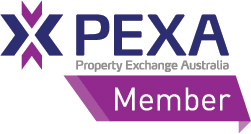Communiqué 1 / 31
March 17th, 2017
Shareholder Agreements - The Basics
A Shareholders Agreement is a contract between the shareholders of a company in which they agree to regulate the exercise of their rights as shareholders over the life of the company.
This article is designed to provide an overview of some of the fundamental components of Shareholders Agreements and the reasons why it is important the shareholders of a company have such an agreement in place.
Benefits of a Shareholders Agreement
Some of the benefits of entering into a Shareholders Agreement include the following:
- It forces the parties to consider the procedures which the company and the shareholders will follow if certain events occur (such as a change in a shareholder’s circumstances e.g., death or incapacity);
- If prepared at commencement of the company, then it allows shareholders to address critical issues at the outset rather than as such issues arise;
- It can assist the shareholders to avoid or minimise disputes through the adoption of predetermined dispute resolution procedures and avoid or reduce the costs associated with any disputes;
- It provides control measures which can assist the company avoid unplanned expenditures, indebtedness or other outgoings; and
- It can document an exit strategy for some or all shareholders.
Relationship Between a Shareholders Agreement and Constitution
A Shareholders Agreement and company’s Constitution provide similar functions in terms of recording and governing the rights and obligations of a company’s shareholders. However, generally speaking, a Constitution will set out the broad provisions relating to the governance of the company, whereas the Shareholders Agreement is a more specialised document tailored to the particular purposes of the company, the nature of its business and the wishes of its shareholders. To the extent the Shareholders Agreement and Constitution deal with similar issues and there are any inconsistencies, it is common to provide that the Shareholders Agreement prevails.
Important Provisions to Consider
Typically, a well drafted Shareholders’ Agreement should cover the following:
- Board composition and management of the company;
- Frequency and timing of directors meetings;
- Expectations of a director (or principle of a shareholder) within the business and managing outside interests and obligations;
- Decision making power (i.e. shareholders should agree on which decisions will require their unanimous consent, a special majority resolution or an ordinary resolution);
- Dividend/drawing policy & shareholder loan accounts;
- Consequences in the event of death or permanent/temporary disability of partners/directors/principal;
- Transfers of shares and admission of new shareholders;
- Compulsory retirement age and factors to be taken into account when a director retires;
- Restraint requirements and notice period on retirement;
- Determining goodwill calculations on entry and exit;
- Requirements to contribute capital on the happening of a defined event or procedure;
- Specifying events/conduct which may result in automatic expulsion;
- Dispute resolution procedures; and
- Selling or winding up the company.
Despite the above, no two Shareholders Agreements are the exactly same and it is important that the document is specifically tailored having regard to the relevant business and the intentions of the parties.
Clelands Lawyers can assist you with the requirements of your shareholder agreement, contact Rinaldo D'Aloia, Susan Biggs or Patrick Connelly



